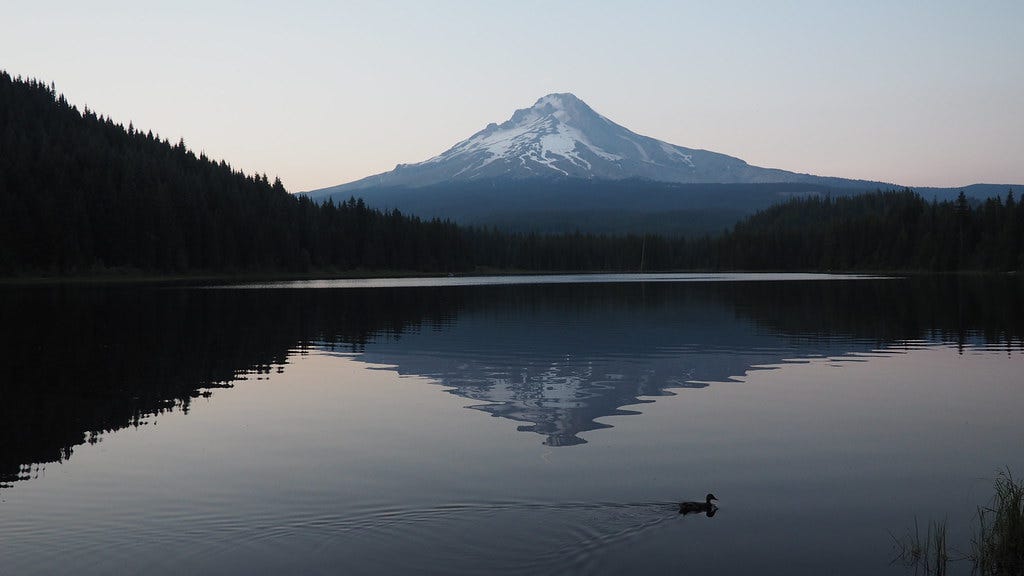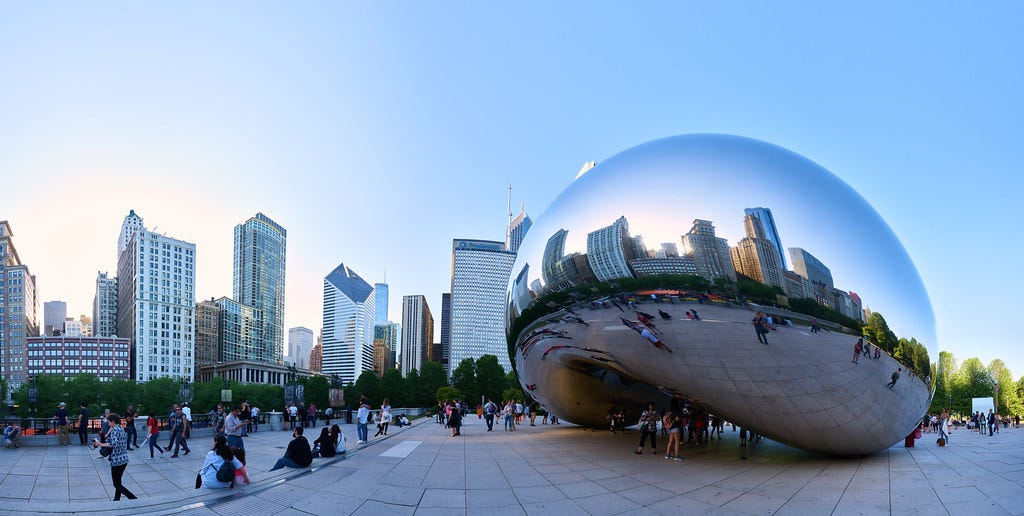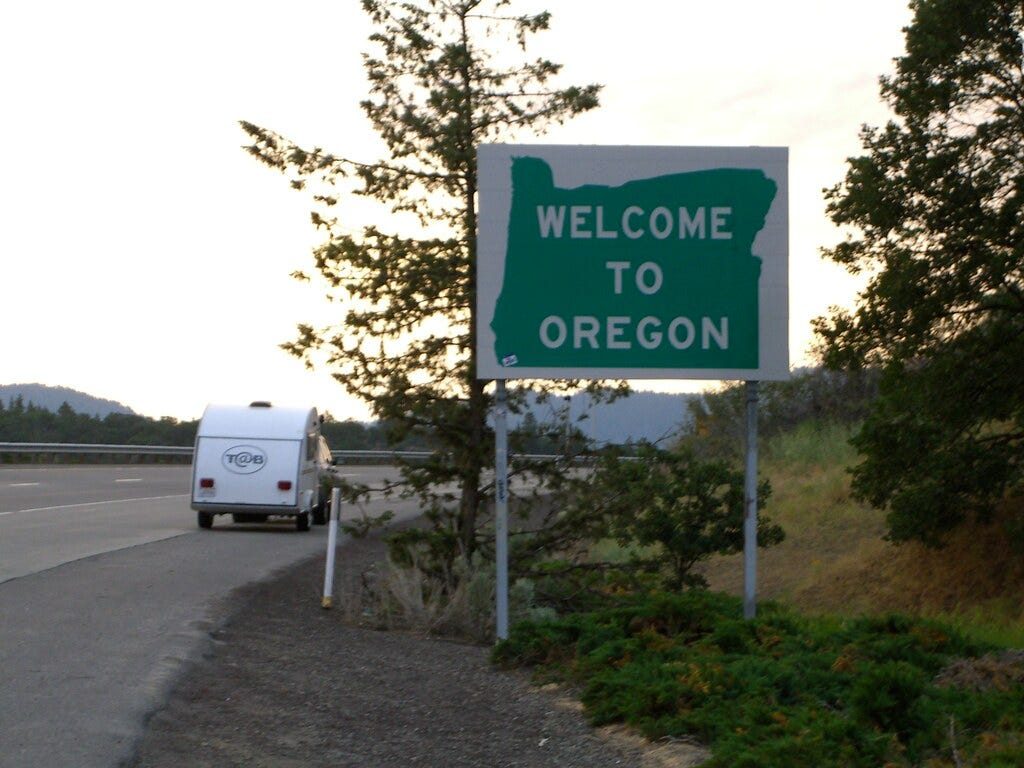Adam Davis works with Oregon Humanities to get people thinking and talking together, and he used to lead backcountry trail crews with the US Forest Service.
Who are “we”?

On Saturday, we learned who will likely serve as the next President, but we still do not know who we are. We Americans—and we Oregonians—will, no matter who becomes the next President, remain difficult to know or understand as a group, especially if what we’re looking for is a group sufficiently unified to warrant the pronoun “we.”
To my mind, the formation and sustenance of a public “we” is the signal achievement of any political body—whether at the level of nation, state, or city. In any political body that’s diverse and pluralistic and democratic, this achievement is particularly demanding. How many of us, and for how many different reasons, shake our heads or head for the hills when someone says “we Oregonians” or “we Americans”? How many of us would feel like there isn’t room in either phrase to include us, or like there are far too many differences between us to casually call such a group into existence or put faith in such an idea?
Does a Dream exist? Is there a Way to follow?

During this season of highly divisive local, statewide, and national elections, I’ve been wondering: is there an Oregon Way? Is there an American Dream? Are these notions—The Oregon Way, The American Dream—naïve, misguided, nostalgic, dismissive, exclusive, nuts? Or is there something to them, even if residing more in aspiration than fact?
I’ve been trying, almost 8 years after moving with my family to Oregon, to understand myself as an Oregonian. My kids already seem to see themselves as Oregonians, but I’m pretty heavily from Chicago, which means I already have a Way inside me: the Chicago Way. I’m not talking about the Chicago Way mythologized by Sean Connery in the film The Untouchables (“he pulls a knife, you pull a gun; he sends one of yours to the hospital, you send one of his to the morgue”), though there’s something of that in the Chicago Way I’ve come to understand as a part of me. It’s the grittiness, the “Second City” character of Chicago that I think I share with everyone else who has lived through those winters and ridden drafty buses over endless gray pavement and shaken a fist at Isiah and the Pistons when Jordan’s Bulls—our Bulls—finally sent them packing. Somehow meat packing, too, is part of the Chicago Way, though I don’t know anything about slaughtering cattle and don’t even eat meat. But because Chicago is an idea, an ethos, and a story that I see myself in, I have the sense that Upton Sinclair, a century ago in The Jungle, wasn’t only writing about Jurgis and Ona; he was also writing about me.
But then I moved to Oregon, as so many people do, and so, day by day and season by season, I’m becoming part of the Oregon Way, or it’s becoming part of me, even as I try to figure out exactly what it is—and even as the Oregon Way must be becoming some other, more expansive version of itself.
Finding the Oregon Way

I’ve learned from a number of sources, including earlier entries on this blog, that The Oregon Way has been invoked by a number of hallmark Oregon officeholders to refer to a pragmatic, inclusive, and respectful process of addressing shared challenges. This strikes me as an accurate and useful but still limited version of the Oregon Way – limited primarily to those seen as leaders and limited primarily to the political realm. What I’m trying to find is the Oregon analog to that feeling I became aware of in Chicago—the feeling that Chicago wasn’t only a place or a process, it was also a way of being.
What I’m wondering, in other words, is whether there’s a distinctively Oregon way of being, and if so, what it is. Could there be a way of being that somehow includes those of us in Harney County and Multnomah County, Klamath Falls and Hermiston, North Portland and the North Coast? And if there is such a way of being—a distinctively Oregon way of being—how could you find it, recognize it, and maybe go on to describe it?
This question isn’t only of private interest for me. It’s also part of my job. I work with an organization, Oregon Humanities, that strives to get people talking all over Oregon about the big challenges and questions their communities share. In partnership with public libraries and community colleges and social service agencies and municipalities and other kinds of organizations, we run programs with names like the Conversation Project, Bridging Oregon, Connect in Place, and Dear Stranger. We publish stories and short films and audio pieces by Oregonians in order to open up different aspects of Oregon’s past and different hopes for its future. So I regularly have the honor and pleasure of finding myself in real and virtual rooms where Oregonians talk with one another about this place and what it means to them. In doing so, they’re both giving words to what they think the Oregon Way might be and they’re modeling, to each other and to me, what the Oregon Way might be in practice.
The more of this conversation and storysharing I do with Oregon Humanities, the more I’ve gotten stuck on the question of how much culture—how much of a way of being—we should expect to find emanating from a state, rather than a nation or a city. A state is a funny unit of association—far too big for just one team, far too small to flourish on its own. Can such a strangely in-between entity—a state—generate and sustain something of its own distinct and determinative culture, its own Way—especially in times when divisions keep rising to the surface?
I’m afraid that, in the spirit of my work with Oregon Humanities and the religious background that’s also a part of my culture, I’ll end my first piece for this blog with two questions instead of any answers:
First, is an Oregon Way—a way of being Oregonian—possible?
Second, if it is possible, what might it be?
I think these two questions together point back to a third question, the one I started with and want to end with: who, as Oregonians, are we?
*****************************************************
Do you have answers to Adam’s questions or other questions of your own? Share them with:
Adam (@AdamDavisOHm)
and The Oregon Way community: Facebook (facebook.com/oregonway), Twitter (@the_oregon_way)
#59



